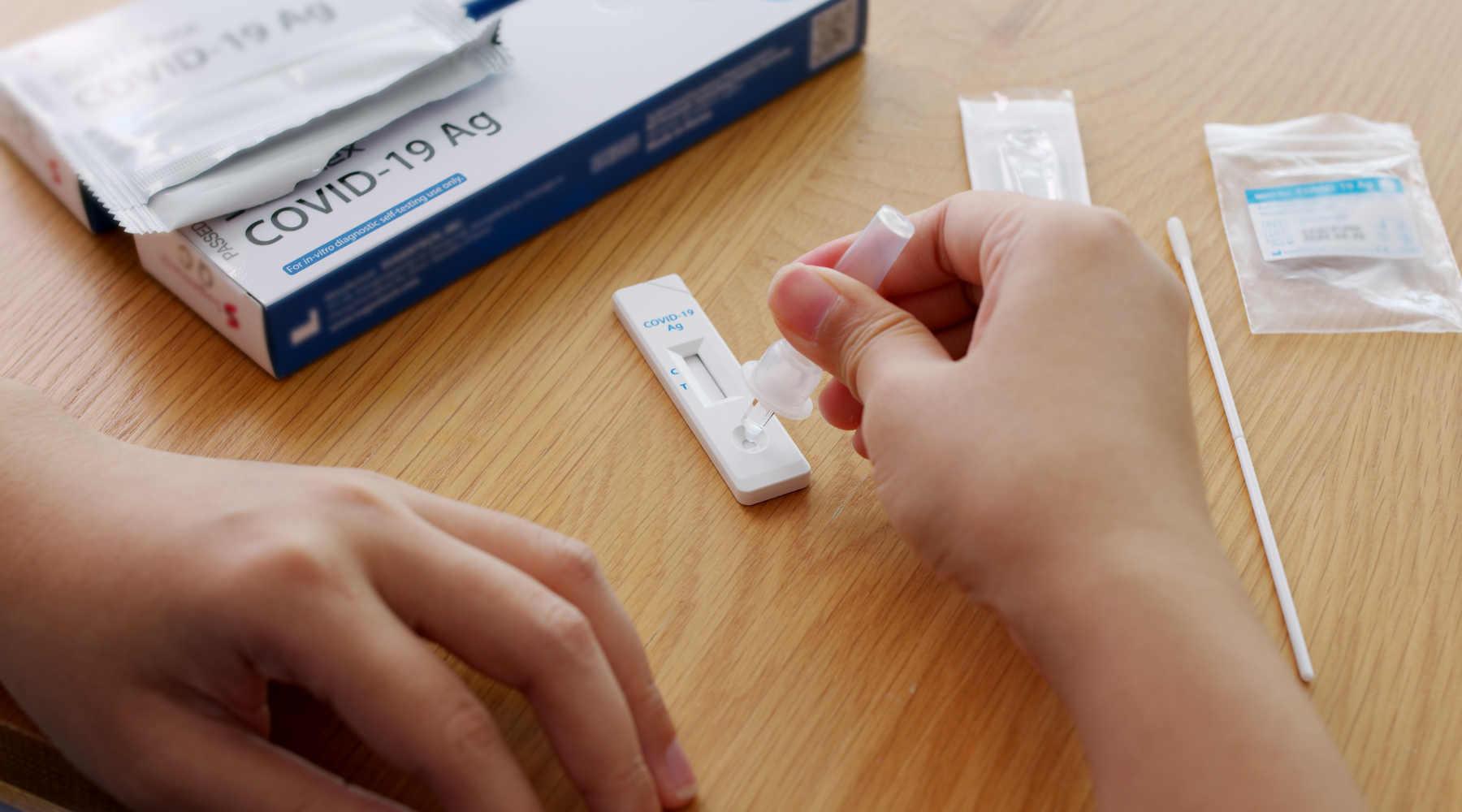Each week, OMRF Chief Medical Officer Dr. Judith James opens “Adam’s Journal” to answer a medical question from Adam Cohen, OMRF’s senior vice president & general counsel.
Adam’s Journal
Here’s a question from a reader:
Are the Covid-19 test kits we have been getting still valid for use with the newest strains of the virus? Or do new test kits need to be created?
Carl J. Rubenstein, M.D.
Oklahoma City
Dr. James Prescribes
The home tests we’ve grown accustomed to using detect what are known as antigens, bits of protein present on the surface of SARS-CoV-2, the virus that causes Covid-19. That virus has changed over time, which means that the Covid-19 infections we’re seeing now are caused by different strains of the virus than in 2020 or even last year.
Still, as of this writing, the most widely circulating current strain – known as EG.5, or Eris – descended from the Omicron variant. Likewise, other common strains currently causing infection have a similar viral lineage, as does BA.2.86, another new variant that scientists are closely watching.
Recognizing that the virus would keep mutating, scientists developed the antigen tests to focus on a part of the virus that has remained relatively unchanged. When the National Institutes of Health and the Food and Drug Administration studied the performance of antigen tests with patient samples that have the Omicron variant, they found that the tests successfully detected the virus.
Based on these results, the tests should continue to work for the currently circulating variants. However, there is an asterisk: With the Omicron variant, the study found the antigen tests require a higher concentration of virus to get positive results. That means you might get a false negative result early in an infection – and then later test positive.
Especially because of this issue – known as reduced sensitivity – it’s important to get a good swab. Also, be sure not to use an expired test (although the Centers for Disease Control did just extend the life of some kits).
If you are having Covid-like symptoms, stay home and isolate from others, even if you test negative. You can also get a molecular test through your healthcare provider or commercial testing services; this will detect much lower levels of the virus, even with new strains.
–
Do you have a health query for Dr. James? Email contact@omrf.org and your question may be answered in a future column!



